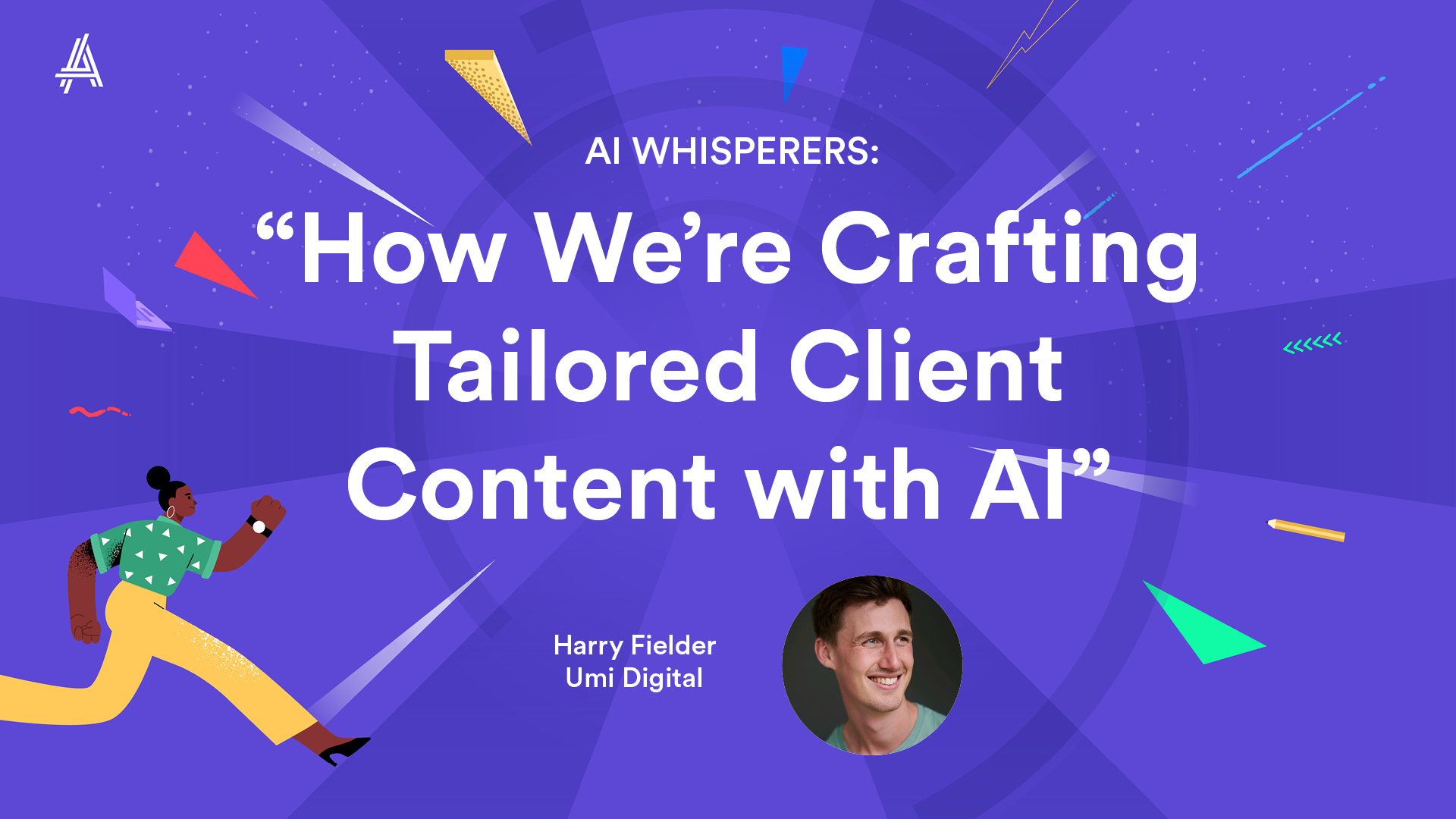
After 12 months or so of public access to ChatGPT, the consensus is this: the content it creates on its own is pretty mediocre. After all, it’s only hoovering up information on the internet and spitting out an average.
But Harry Fielder, CEO of Umi Digital, seems to have found a way around this.
Once upon a time, Umi Digital was actually a hotel company: “The hotels were sold off and the internal marketing department became its own agency,” says Harry.
Now, the agency specialises in helping clients within the hospitality sector compete with booking platforms like Expedia and Booking.com.
“Our main value proposition is, if you do your own marketing well, you can get bookings through your own website at 0% Commission versus 20% Commission on Booking.com.”
Coming from a tech background, Harry knew that they could use AI to help speed up their content creation processes. But after a lot of trial and error, it still wasn’t up to the mark.
“Off the bat, it used very flowery language, but it wasn’t that accurate. Obviously, the training data for ChatGPT is very broad and generic. While it does have some training data on larger businesses – like Marriott and Hilton – it doesn’t have the actual information about their business. So it can be very good at putting marketing material together, but it has no concept of business nuance – who the guests are, what the guests think of it, and what the guests enjoy.”
“So our next question was, ‘How can we make it more relevant?”
Harry realised that if the main problem was the training data, then that’s what they needed to change. Which is exactly what they did.
“Online reviews have all of the information we need at scale. Most hotels have around 3,000 reviews, all of which are 50 words or more. So we ended up writing a scraper to scour the internet for reviews, and then we just uploaded them to ChatGPT.”
From there, the content team could ask all sorts of questions. Things like: ‘Why do guests travel here?’ or ‘Which member of staff is most popular?’. They could now tap into stories from real guests and use them to tailor their marketing content.
“That was an absolute game changer in terms of creating very relevant copy for that business,” Harry says.
But this strategy isn’t just reserved for hospitality clients – Harry suggests that it could adopted for and adapted to a whole range of different clients.
“Everyone is sitting on a whole load of data just waiting to be used. But very few people are actually using AI to its full potential.”
In this session, Harry will tell us in detail how his agency is combining client data with AI tools to create meaningful marketing content. Come along to hear in detail how the strategy came to light and how you could use it for your own clients.
